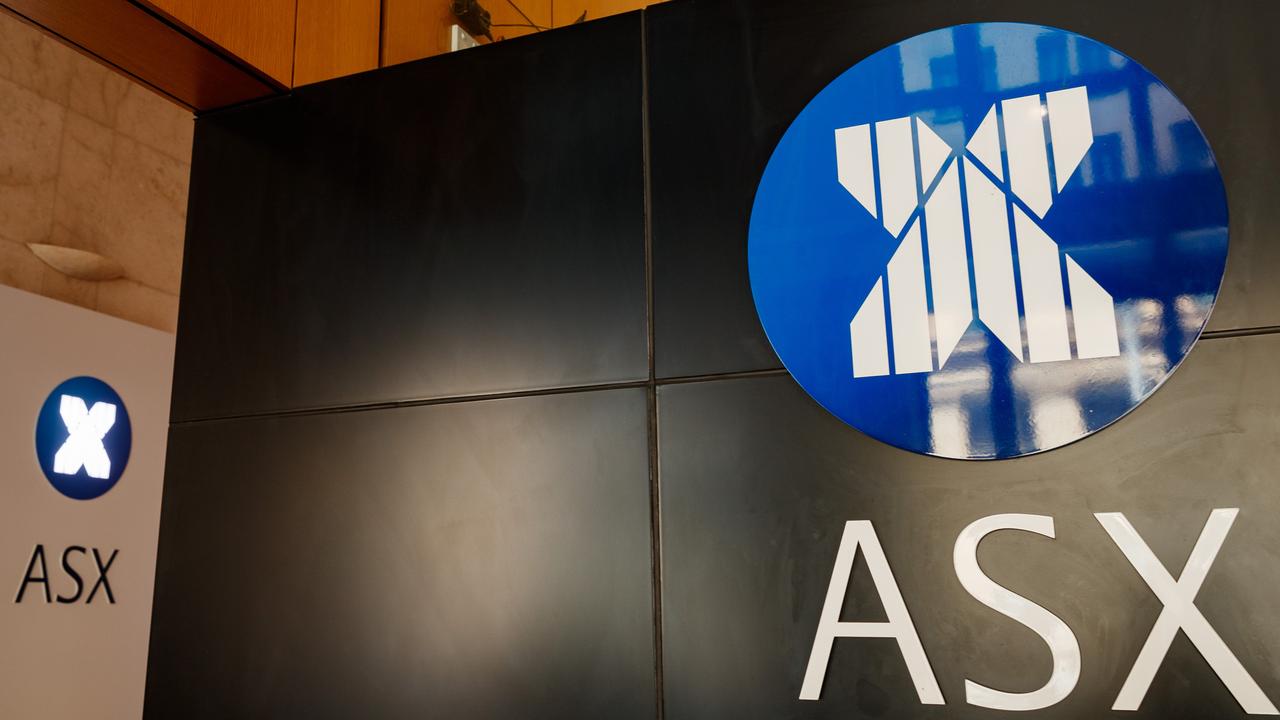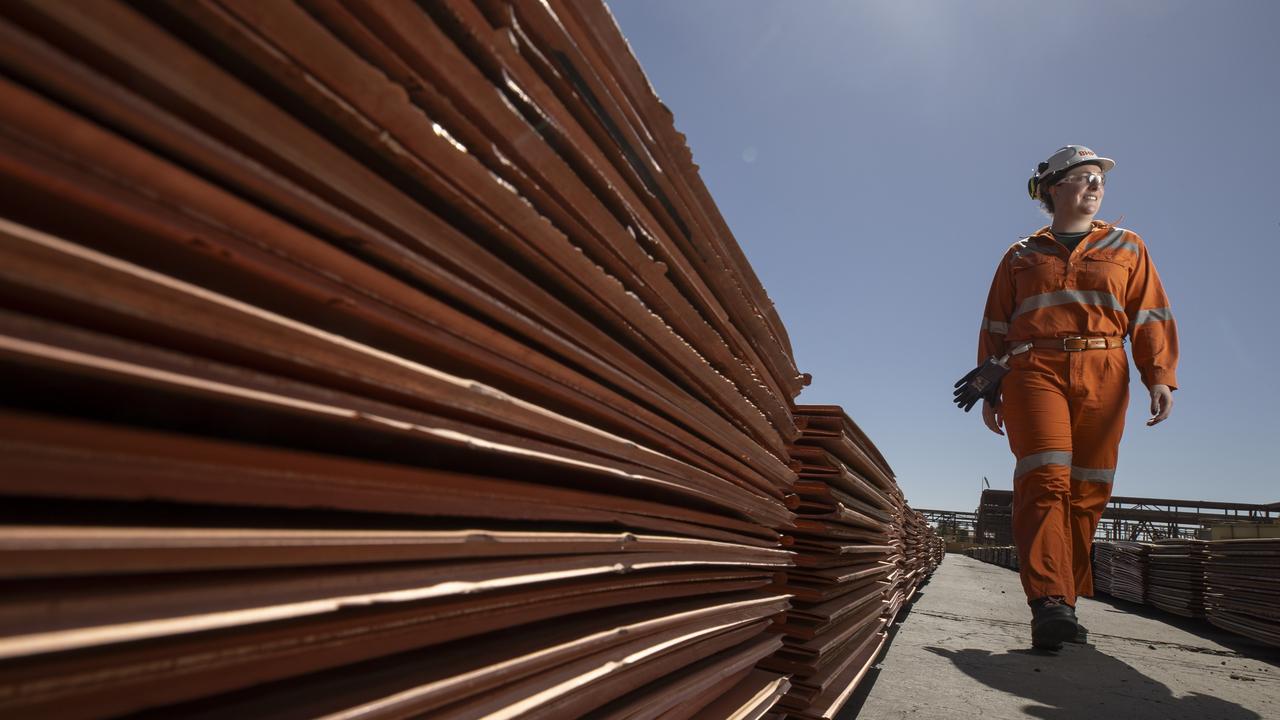World turmoil leaves Australia in free fall as mineral prices drop
The world is facing catastrophic change, costing billions, and Australia is in the line of fire.

Mining
Don't miss out on the headlines from Mining. Followed categories will be added to My News.
Nickel is being swamped by naysayers. Lithium has investors feeling low. And iron ore has addicted Australian governments scrambling to balance their books.
And it’s all bad news for everyday Aussies, as these minerals makes up a major part of our national tax income and a significant part of your superannuation investment.
So what’s happening in the world of mining to evoke such turmoil?
Geopolitics.
Russia’s invasion of Ukraine. China’s ambitions over Taiwan, the East and South China Seas and the Himalayas. Israel’s stampede through Gaza. Africa’s descent into chaos. America’s extreme polarisation.
International analysts say all are expressions of a fragmentation of the world order.
These fracture lines have all but rendered the UN ineffective. Global trade mechanisms are being bypassed. International law is being ignored.
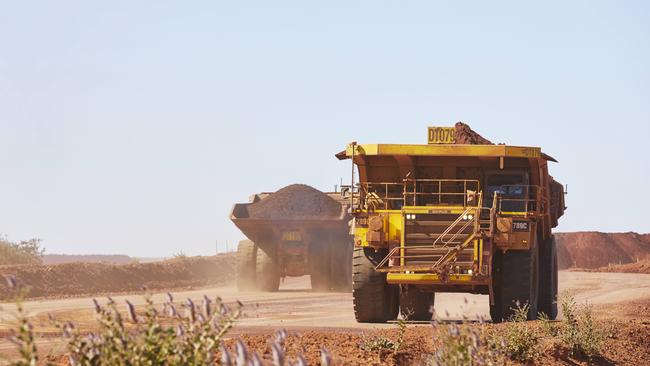
And metals – especially critical minerals – are especially vulnerable to this clash of wills.
“Trade is often thought to promote peace and prosperity because rich and economically interdependent countries have powerful incentives to avoid war,” Australian National University Professor of Global Governance Anthea Robers writes for Foreign Affairs.
“But the effect is more ambiguous: interdependence may reduce the probability of conflict, but it can also make the consequences of conflict more dire if it does break out — since strong economic ties can be weaponised to devastating effect.”
Weaponised trade
China’s economy is stumbling. Its over-inflated real estate bubble has burst, sending shockwaves through every level of society.
But international investors are also pulling their money out, spooked by the arrests of auditors and compliance officers for “spying”. Not to mention interference from party commissars and a bevy of fresh restrictions, limitations and compliance requirements.
It’s not entirely unexpected.
And it’s a price Chairman Xi Jinping is prepared to pay.
He has been pushing for Chinese self-reliance and “decoupling” from existing international frameworks for more than a decade.
Meanwhile, his state-owned and state-controlled corporations have been pushed to do the opposite – take controlling stakes in key industries worldwide.
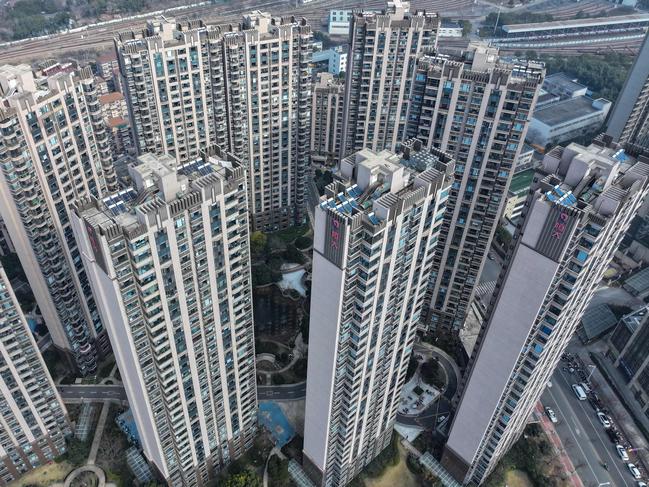
But Beijing’s tantrum at Australia’s call for an investigation into the origins of Covid-19 may have exposed its hand.
In 2020, it cancelled a slew of imports in an effort to coerce Canberra to back down.
Australia’s coal, barley and cotton suppliers quickly found alternate markets. But specialist products, such as wine and lobsters, continue to struggle.
This experience was shared by several European nations. And Japan had previously been a target – of critical minerals export bans – over a political disagreement in 2010.
“The Covid-19 pandemic, Russia’s invasion of Ukraine, and rising tensions between the United States and China have all made Western companies and countries more wary of the risks associated with economic interdependence,” says Professor Roberts. “Few, however, are prepared to make the sacrifices that full-scale decoupling would entail.”
Critical vulnerability
Individual nations define critical minerals differently. But mostly it’s applied to metals that exist in low, difficult-to-extract concentrations. And many of them are intermingled with toxic and radioactive materials.
They’re not needed in bulk, like iron ore. But they are playing an increasingly crucial role in modern economies and militaries because of the unique properties they contain.
At the same time, many of these technologies and their associated markets are new – and therefore uncertain.
Electric vehicles are a standout example. Governments like Canberra want to jump on the advanced battery manufacturing bandwagon. But its own policies are choking EV sales in Australia and stalling the pivot from coal and gas to hydrogen and electricity.
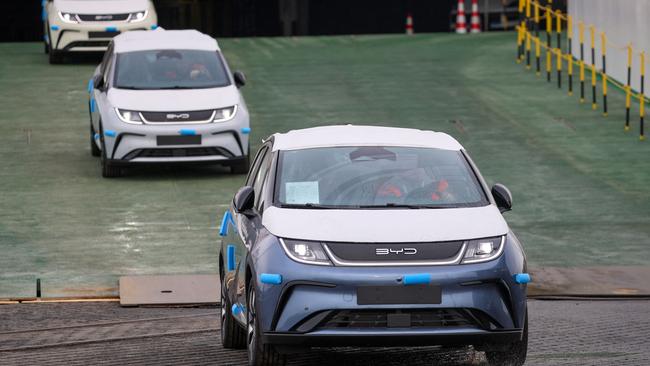
For investors, it’s a classic case of risk versus reward.
Now it’s an equation that has to factor manipulated price movements alongside inherently energy-intensive extraction processes and polluting refining techniques.
“When you consider the backdrop of what’s driving these issues, it’s ultimately that we’re dealing with a monopoly power in China that isn’t regulatable in the form of monopolies that we’ve ever dealt with in the past,” Managing Partner with Metis Endeavor Adam Johnson told the Centre for Strategic and International Studies (CSIS).
“It’s this unregulatable monopoly that’s exerting market influence.”
Much of that monopoly is held by Chinese state-owned corporations. The rest is held by Chinese companies under Communist Party control.
Essentially, they have just one investor to keep happy – Chairman Xi.
And he can pass his losses on to every Chinese citizen.
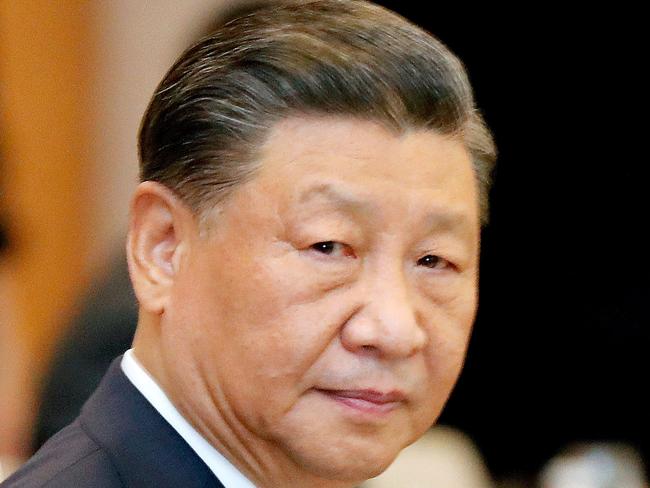
“That’s part of the reason why private capital is very apprehensive entering the space,” says Johnson. “It becomes a question of who’s going to take that risk. And that risk is ultimately being driven by geopolitics, which means oftentimes – from a private capital standpoint – you look to the government to provide solutions.”
The quarry: Australia
“Australia’s continued willingness to focus on raw minerals exports is in sharp contrast to a drive underway in other countries to reassert control over their resource endowments as the basis for further industrialisation,” argues University of Cambridge international economics analyst Connor O’Brien in the Lowy Institute’s Interpreter.
“Other countries are using so-called ‘resource nationalism’ measures to compel mining companies to invest in minerals refinement and processing.”
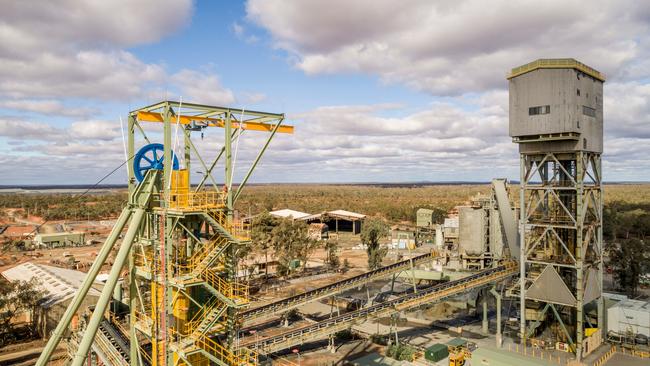
The United States has introduced an Inflation Reduction Act, which targets tax breaks for industries involved in the energy transition and CO2 reduction efforts. This includes critical minerals.
Meanwhile, O’Brien adds, Chile is moving towards nationalisation (state ownership) of its lithium industry while seeking to establish a “lithium OPEC” with Argentina and Bolivia.
He adds that Australia’s not in a good position to respond or adapt, pointing to the nation’s dramatic loss of “economic complexity” (its mix of industrial capacity and diversity) over the past decade.
“With little evidence to suggest that Australia is meaningfully decreasing its heavy economic reliance on raw minerals exports, the government should be seriously considering adopting its own measures to shape mining policy within Australia and the green transition abroad,” O’Brien writes.
Jamie Seidel is a freelance writer | @JamieSeidel
Originally published as World turmoil leaves Australia in free fall as mineral prices drop




